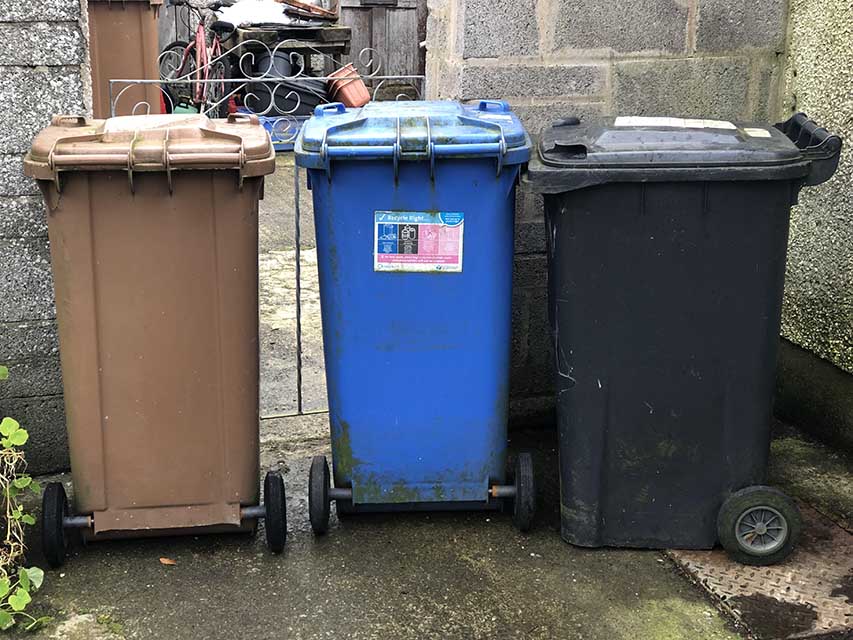Integrated waste management structure for Mallusk shaping up
- Indaver Awards £505 Million Contracts for Construction of Rivenhall Integrated Waste Management Facility (IWMF) and Energy Centre in Essex
- Meanwhile, Investment in Necessary Waste infrastructure in Northern Ireland Put at Risk
Indaver, the European waste management company behind plans to build an integrated waste management infrastructure in Mallusk on behalf of six local councils including Newry Mourne and Down District Council in the arc21 area have today awarded contracts worth over £505 million to build similar facilities in Rivenhall in Essex, United Kingdom.
The development includes an Energy from Waste (EfW) facility to treat household and commercial waste that cannot be recycled. It will recover energy and export enough electricity to supply the power needs of approximately 60,000 households.
This announcement coincides with the recent award of planning permission for an electrolyser to produce hydrogen at Indaver’s Meath Energy from Waste facility as well as progress in the planning process to build a €160 million, Energy from Waste facility in Ringaskiddy, Co. Cork.
Meanwhile, in Northern Ireland significant similar investment plans have once again been put at risk, following a recent decision by the former Minister for Infrastructure to refuse planning permission for the arc21 project says an Indaver spokesperson.

While site preparation has been underway for a number of months in Essex, the construction of the Energy from Waste part of the facility will start soon and is on track to begin commercial operations in early 2026.
Indaver has appointed global ‘cleantech’ company Hitachi Zosen Inova (HZI) as lead EPC contractor for the Rivenhall project, alongside Irish civil contractor PJ Hegarty Limited and earth moving contractor Tom Blackwell Limited.
Fabio Dinale, VP Business Development at HZI said: “The UK’s drive for sustainable waste management includes clear recycling targets as well as ensuring that non-recyclable waste does not end up in landfill.
“However, it’s important that this waste is also appropriately managed to allow energy and valuable materials to be recovered in the process and lower our overall carbon footprint.
“Modern EfW plants like the Rivenhall IWMF and Energy Centre will make significant contributions to meet these vital social and environmental goals.”
Speaking about these developments and the delays in Northern Ireland, Jackie Keaney, Commercial Director, Indaver said: “The significant investment being announced today in Essex highlights the scale and ambition of Indaver’s overall investment plans for the UK and Ireland market. Unfortunately, our aspirations to deliver integrated waste management facilities to meet clearly identified local council needs in Northern Ireland have met with further delays.
“This comes at a time when recently published Northern Ireland waste data shows more waste instead of less is being landfilled and exported due to the lack of local infrastructure. As we transition to net zero carbon and a circular economy, we must develop local sustainable waste infrastructure.”
“Our proposals for Northern Ireland represent a quarter of a billion pounds investment in much needed public infrastructure to help six local councils maximise their recycling levels and deliver a sustainable solution for their non-recyclable waste.
“The proposed investment will create significant jobs during construction and when operational, help deliver much needed local energy resilience and security and will result in a council owned asset.
“While the recent setback is disappointing, we continue to work with arc21 to consider the next steps in the development of this critical piece of waste infrastructure.”
At the same time DAERA data which tracks the export of Refuse Derived Fuel (RDF) waste from Northern Ireland shows that we have increased exports of such waste across Europe by 46.8% in 2021 compared to the previous year. It has risen from 125,766 tonnes in 2020 to 184,634 tonnes in 2021. That means NI’s waste is being shipped in greater volumes to fuel energy from waste plants across Europe – including to Sweden, Norway, Denmark, Spain, Latvia and Ireland.
A spokesperson for Newry Mourne and Down District Council explained that “the Council has the second lowest landfill rate of the 11 Northern Ireland district councils. The Council does not send household waste direct to landfill, and all collected residual waste (black bin) is processed for fuel and it is only the discards and residual waste from the processes that may be landfilled.
“As recycling and landfill diversion targets increase in the coming years, additional local processing capacity will be required.
“The Council will continue to work with its local waste processing industry partners in order to ensure that future targets can be achieved sustainably and in line with the proximity principle.”


























